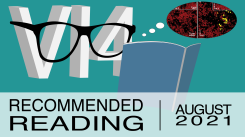Postdoc Spotlight: Heather Caslin, Ph.D.
Heather Caslin is a postdoctoral researcher in the Alyssa Hasty lab at Vanderbilt University in the Department of Molecular Physiology and Biophysics. She received her Ph.D. from Virginia Commonwealth University. She studies how macrophages and mast cells contribute to weight cycling accelerated metabolic disease. Heather is also passionate about teaching, mentorship, and outreach, and she has worked with the Collaborative for STEM Outreach and Education at Vanderbilt University, has volunteered with the organization Black in Immuno, and does science communication via Instagram!... Click the image on the left to continue reading.










